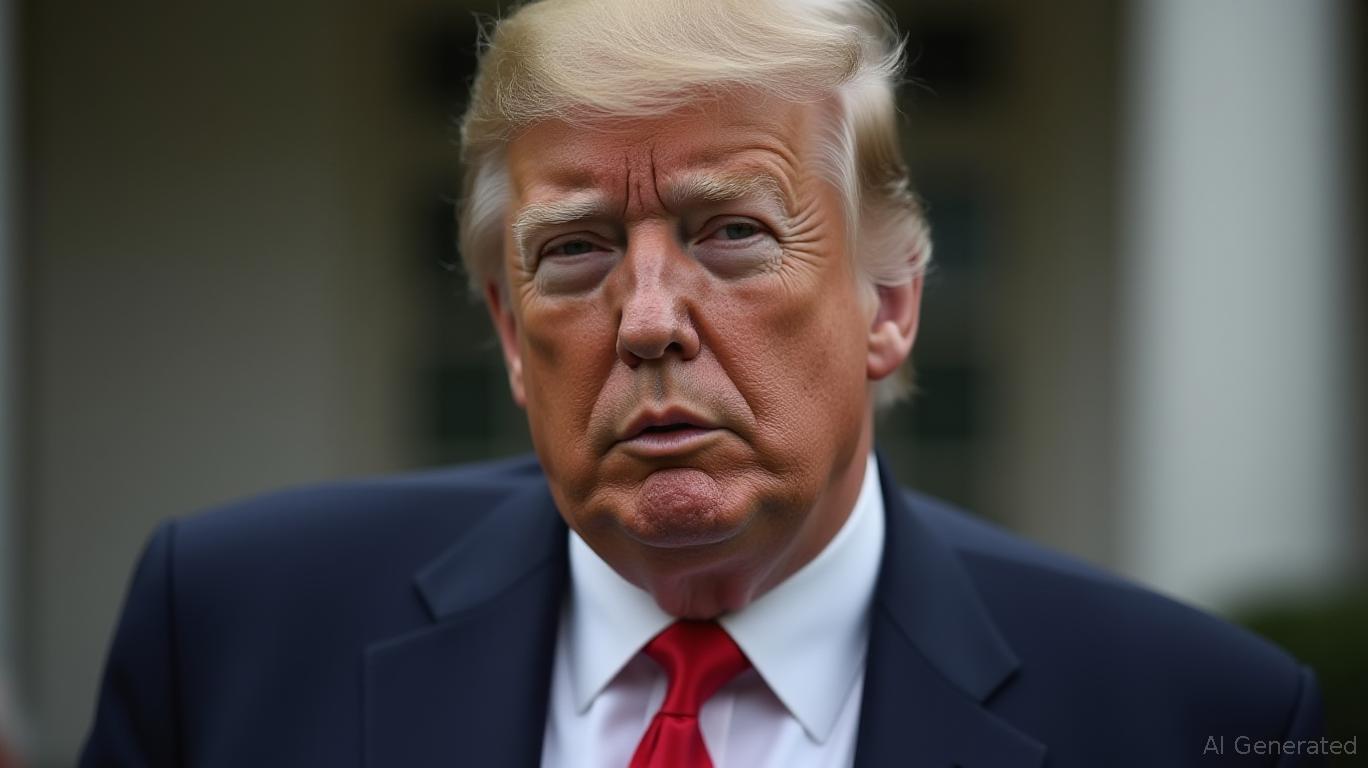Trump Files $15 Billion Lawsuit Against NYT—Battle with the Press Persists
- Donald Trump filed a $15B defamation lawsuit against the New York Times, alleging false statements caused financial and reputational harm. - Legal experts highlight the high burden of proof for public figures, requiring "actual malice" to succeed in defamation claims. - The case reflects Trump's ongoing legal battles with media and broader disputes over free speech vs. accountability in public life. - The New York Times faces expected defenses based on press freedom, with resolution likely taking months
Donald Trump has initiated a $15 billion defamation lawsuit targeting the New York Times, marking the latest episode in his ongoing legal battles with major news organizations. The complaint, which is still being evaluated, accuses the New York Times of releasing false and harmful information that allegedly resulted in considerable financial losses and reputational damage. While the lawsuit has not yet cited specific articles or statements from the New York Times, legal analysts believe the proceedings could extend for months or even years, given the complexities associated with defamation lawsuits involving prominent individuals.
This legal move follows a pattern of lawsuits Trump has brought against various media companies. Throughout his presidency and after leaving office, he has often denounced the press, frequently branding certain outlets as “fake news.” The New York Times has regularly found itself at the center of Trump’s criticisms. His attorneys have argued in the past that negative press coverage has led to measurable financial harm, including setbacks to his business interests and political fundraising.
The broader legal consequences of this case could be significant, especially regarding how courts interpret defamation claims concerning public figures and media scrutiny. Experts in the field point out that defamation suits brought by public figures face a particularly high threshold; the plaintiff must show “actual malice,” which means the publisher either knowingly spread falsehoods or acted with reckless disregard for the truth.
This court filing illustrates the challenging legal environment Trump faces. Since his departure from office, he has been involved in numerous civil and criminal proceedings, ranging from allegations of election interference to accusations related to his business and campaign finances. Each of these cases has garnered nationwide coverage and sparked debates about the intersection of free expression and public accountability. The defamation complaint against the New York Times could become a major focal point if it moves forward in court.
At present, the New York Times has yet to comment publicly on the lawsuit, though internal discussions and legal strategies are likely in motion. The organization has encountered similar lawsuits before and is expected to defend itself by upholding journalistic freedom and the reliability of its reporting. According to legal specialists, the outcome will probably depend on whether the contested statements can be proven false and whether there was malicious intent behind them.
This case highlights the persistent tensions between Trump and the press, a recurring theme throughout his political life. Although the final verdict remains unknown, the dispute is expected to draw widespread attention due to the high-profile nature of both Trump and the New York Times.

Disclaimer: The content of this article solely reflects the author's opinion and does not represent the platform in any capacity. This article is not intended to serve as a reference for making investment decisions.
You may also like
[Initial Listing] GAIB (GAIB) will be listed in Bitget Innovation and AI Zone
New spot margin trading pair — ALLO/USDT, MET/USDT!
[Initial Listing] Bitget Will List Datagram (DGRAM) in the Innovation and DePIN Zone
Bitget Spot Margin Announcement on Suspension of L3/USDT, ULTI/USDT Margin Trading Services